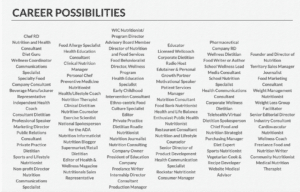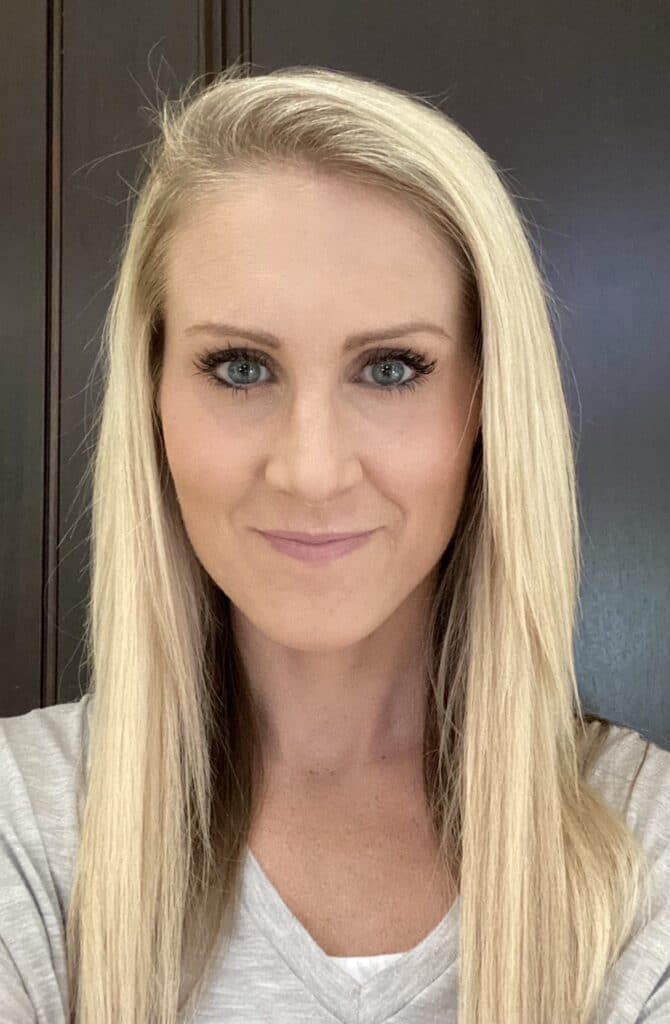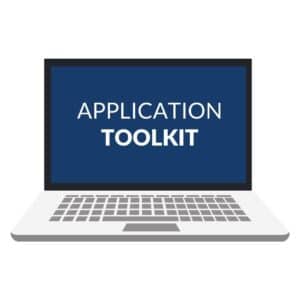4 Ways to Kickstart Your Journey to Becoming a Registered Dietitian
- 0 comments
- by jennifer.westerkamp
The road to becoming a registered dietitian is long but rewarding.
The dietetic internship match rate is 70%, meaning only about ⅔ of eligible students who apply are offered a spot in a program. The dietetic internship provides you with the supervised practice experience you need to sit for the RD credentialing exam.
Unlike traditional didactic programs where students must apply to get matched for a dietetic internship, students in Coordinated Master’s Programs and Future Education Graduate Programs are not faced with this challenge: Their coursework and internship components are combined.
However, students in Coordinated Master’s Programs often apply during their sophomore, junior, or senior year of their undergraduate degree. Hence, their future depends on their ability to bolster their resume early in their college career.
In other words, they start early.
Click here to read “How to Become a Dietitian” to learn more about the different pathways you can take.
While it may seem premature to start preparing your application materials during your early years as a college student, it will allow you to begin to identify your interests in the field, and ultimately, set you up to be a more competitive candidate.
Although having a high GPA is undoubtedly important for your future application, there are other factors you can pursue right now in order to set yourself up for success.
Here are 4 ways to kickstart your journey to becoming a Registered Dietitian and increase your chances of landing a spot in a dietetics program!
1. Volunteer for Local Nutrition Programs
Gaining unpaid dietetics experience early on as a student shows directors that you’re committed to getting experience in the field and will be a great fit for their program/internship. There are endless opportunities close to you which do not require extensive knowledge and are accommodating for your busy student schedule. To get involved, research local food banks, WIC offices, hospital kitchens, farmers markets, meal services like Meals on Wheels, etc. to name a few that you most likely have in your area! In the event that you don’t see volunteer positions listed, reach out or drop off your resume and create your own volunteer experience! Although you may not have the knowledge yet to pursue a paid position, volunteering shows that you are committed and in turn will lead to further opportunities, and a more competitive application overall.
2. Engage in Extracurricular Activities
Look to join your school’s nutrition club, sports teams, and other activities where you may hold a leadership position. Even if it may not be directly related to your degree, it will portray you as a well-rounded student who is capable of keeping up with various responsibilities. In addition, dietetic students should look to become a member of the Academy of Nutrition and Dietetics. Many registered dietitians are members of the Academy of Nutrition and Dietetics, thus, by joining early you are showing that you’re involved in the organization and up-to-date on their statements. Furthermore, you will have the opportunity to apply for scholarships and be involved in Dietetic Practice Groups of your interests, allowing you to network with other specialists in the field.
3. Pursue your Interests
This may be often overlooked as many students tend to separate their studies from their interests and hobbies. However, by combining interests, you are demonstrating that you truly enjoy your coursework and will excel in your future specialty. For instance, those who enjoy writing may consider starting a nutrition blog, while others interested in exercise may look into fitness training on campus. Although this may look different for each student according to their interests and the dietetics specialty they hope to pursue, it will ultimately help you find your niche, which you may have the opportunity to showcase in your personal portfolio throughout the application process.
Click here to see how you can start your own nutrition blog!
4. Reach out to your Campus or Local Dietitian
Most schools and universities have a food service dietitian tasked with managing the campus dining menu, assisting students with special allergies, and working closely with the kitchen staff to ensure an excellent dining experience. Likewise, most schools also have a clinical dietitian in their medical center, working directly with students on campus. By simply reaching out and asking to interview or shadow them, you may not only gain valuable experience and knowledge, but you’re also demonstrating your interest and making connections in the dietetics field on campus which may certainly benefit you as you progress through your undergraduate degree.
These 4 experiences can help to bring your resume to the next level so you stand out in the pile of other applicants. However, simply knowing the types of experiences to seek out as an aspiring dietitian is only the beginning. Get Matched Coaching is our signature one-on-one program to walk you through the entire process and give you the support you need. 100% of our recent cohort landed a spot in their dietetics program of choice. Click here to learn more.
How Early Experience can Impact the Rest of Your Career
Beginning to build your resume as early as your freshman year will allow you to enter your application process as a more confident and competitive applicant. In gaining a variety of experiences in different settings, you will appear as a more prepared candidate for the program or internship in which you wish to be matched, as you have proven that you can handle experiences while simultaneously excelling in the classroom. During the process, you will undoubtedly expand your dietetics skill set and gain valuable contacts in the field.
Aside from these benefits, gaining early experience on your journey to becoming a registered dietitian will ultimately allow you to have a broader perspective and be more confident in which areas you wish to pursue. For instance, while you initially may have been inclined to study dietetics because of the clinical associations between disease and nutrition, you may have a community, or entrepreneurial experience in which you discover your passion. Remember, it’s never too early to start.
To help you stay motivated, remember that there are countless career possibilities for registered dietitians. Here’s an excerpt from our “7 Ways to Be an Awesome Dietetics Student” Ebook, which can be found in the free Dietetic Internships Toolkit.

Keep up the momentum, you can do this!
P.S. Applying to internships or combined graduate programs? Work one-on-one with one of our expert admissions coaches to help you create a stand-out application and increase your chances of starting your dream career sooner. Click here to learn more about Get Matched Coaching.
P.P.S. Special thanks to Julia Stumpf, graduate student at Rowan University and dietetic intern for All Access Dietetics, for contributing to this blog post. Connect with her on Instagram at @julstumpf!










